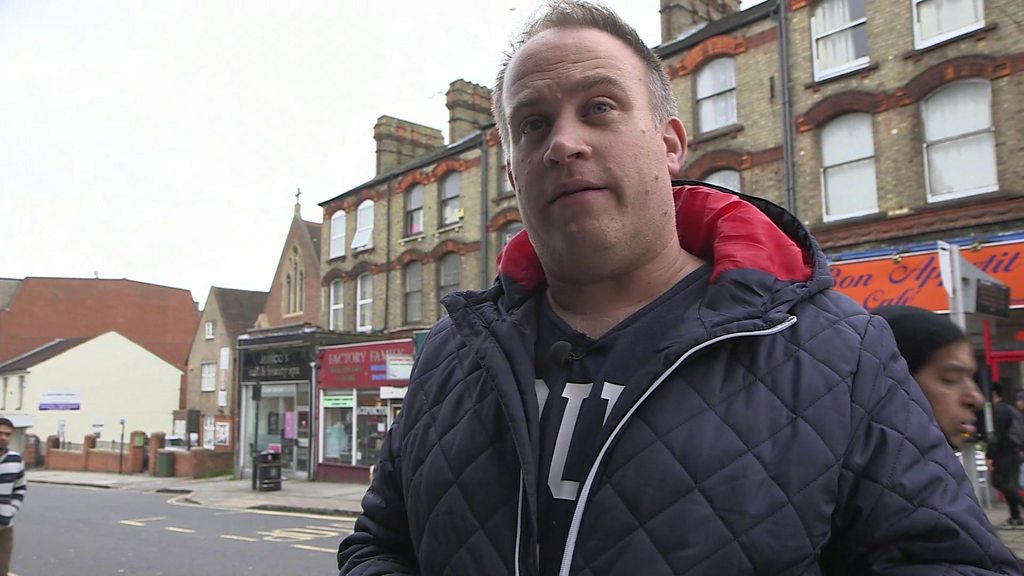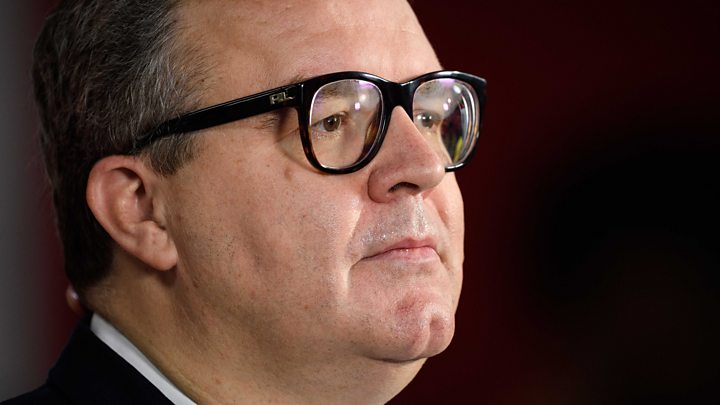Fixed-odds Maximum Bet 'could Drop To £2'


The maximum stake for fixed-odds betting terminals could drop to as little as £2 under a government review.
Currently, people can bet up to £100 every 20 seconds on electronic casino games, but ministers are considering a new limit somewhere between £2 and £50.
The consultation aims to reduce the risk of people suffering large losses and to tighten up advertising rules.
The Association of British Bookmakers said problem gamblers would find somewhere else to continue their habit.
Changes would hit UK gambling company revenue, put at £1.8bn last year, but problem gamblers say action must be taken - including, but not only, lessening the amount they can lose in one hit.
Gambling vlogger Andrew Margett told BBC Radio 5live how the machines, also known as FOBTs, proved addictive: "I was just, in a trance, in a complete bubble, playing it. Hitting the button, hitting the button, hitting the button.
"You're just unaware of anyone else and your surroundings - and bear in mind I had a three-week-old son. I couldn't give a monkey's about anyone else."
Former addict Jason Haddigan told the Victoria Derbyshire programme how he lost £300,000 on FOBTs and was eventually banned from all UK bookmakers in 2014.
"I was conning the bookmakers to fuel my addiction. That's why a crown court judge banned me for five years," he said.
He described how he had gambled "since the age of nine" and used to bet on racing. But bookmakers set a limit on what he could put on a horse and suggested he used the fixed-odds machine to gamble instead."
As part of the government review:
- The Gambling Commission - the industry's regulator - will consult on changes to protect online players.
- Broadcasters, advertisers, industry and support groups will draw up an advertising campaign to promote responsible gambling, with an annual budget of up to £7m.
- New advertising guidelines will be drawn up, to protect problem gamblers, children and young people.
- Access by under-18s to gambling content and channels on social media will be restricted.
- Gambling companies are being told to step up funding for research, education and treatment. If they don't, operators may face a levy.
Culture minister Tracey Crouch said current laws on gaming machines - which critics say have called the "crack cocaine of gambling" - were "inappropriate".
"It is vital that we strike the right balance between socially responsible growth and protecting the most vulnerable, including children, from gambling-related harm," she said.
"We have seen online gambling grow rapidly and we need to protect players in this space, while also making sure those experiencing harm relating to gambling receive the help they need," she said.
Labour deputy leader Tom Watson told BBC's Today programme he was "disappointed" that the government had launched a review when it should be taking action.

"People who are problem gamblers seem to be drawn to these machines. They're on their doorstep. They're on every estate in Britain. That's why they're so dangerous," he said.
He said industry fears that betting shops would shut if the stake was reduced had to be balanced against the harm done.
Labour wants a new gambling bill to look at the explosion of digital and online products - to stop children gambling on phones and protect vulnerable people.
Carolyn Harris MP, who chairs an all-party parliamentary group on the issues involved, said there was overwhelming evidence people's lives were being destroyed by the machines.
"When you see the statistics that 31% per cent of people who use these machines are earning less than £10,000... Where do they get the money? Because they are not earning it," she told the Victoria Derbyshire programme.
The government began to look again at gambling in October 2016, when it made a "call for evidence" on the number and location of gaming machines and the measures in place to protect players.
Betting machines have long been a fixture in pubs, clubs and cafes but fixed-odds terminals - introduced in casinos and betting shops from 1999 - offered computerised games including roulette and blackjack at the touch of a button.
Each machine accepts bets up to a pre-set maximum and pays out according to fixed odds on the simulated outcomes of games.
Two categories of games are available, including B3 games with a maximum stake of £2 and a top prize of £500 and the more contentious B2 games, which allow for bets of up to £100 every 20 seconds.
Malcolm George, of the Association of British Bookmakers, said the government shared its wish to identify problem gamblers and get them help.
But restricting terminals in betting shops would redirect problem gamblers to other avenues where there were fewer controls on the amount of gambling, he said.
"Just as alcohol policy in this country is not solely determined by alcoholics" he added, there needs to be an environment for the "vast majority who gamble responsibly".
Any coming changes should "strike the right balance" between what is appropriate for people who want to play and they harm they can cause to some, said John White, from the British Amusement Catering Trade Association - which represents businesses like arcades.
Stakes should be "quite substantially" reduced, he said. Asked about job loss fears, he said half of high street adult gaming centres had disappearing since FOBTs were introduced.
Tax law changes in 2001 led to a vast increase in the number of terminals.
By 2005, about 20,000 terminals were in use and more than 34,000 are now found across the UK, according to the Gambling Commission.
The bulk of the review is focused on getting to grips with how the industry has changed and the growth of online gambling, BBC media editor Amol Rajan explained.
"Nowadays, the gambling comes to you and more people are finding the addiction starting in the privacy of their own home... Kids have got smartphones," he said.
From Chip War To Cloud War: The Next Frontier In Global Tech Competition
The global chip war, characterized by intense competition among nations and corporations for supremacy in semiconductor ... Read more
The High Stakes Of Tech Regulation: Security Risks And Market Dynamics
The influence of tech giants in the global economy continues to grow, raising crucial questions about how to balance sec... Read more
The Tyranny Of Instagram Interiors: Why It's Time To Break Free From Algorithm-Driven Aesthetics
Instagram has become a dominant force in shaping interior design trends, offering a seemingly endless stream of inspirat... Read more
The Data Crunch In AI: Strategies For Sustainability
Exploring solutions to the imminent exhaustion of internet data for AI training.As the artificial intelligence (AI) indu... Read more
Google Abandons Four-Year Effort To Remove Cookies From Chrome Browser
After four years of dedicated effort, Google has decided to abandon its plan to remove third-party cookies from its Chro... Read more
LinkedIn Embraces AI And Gamification To Drive User Engagement And Revenue
In an effort to tackle slowing revenue growth and enhance user engagement, LinkedIn is turning to artificial intelligenc... Read more

